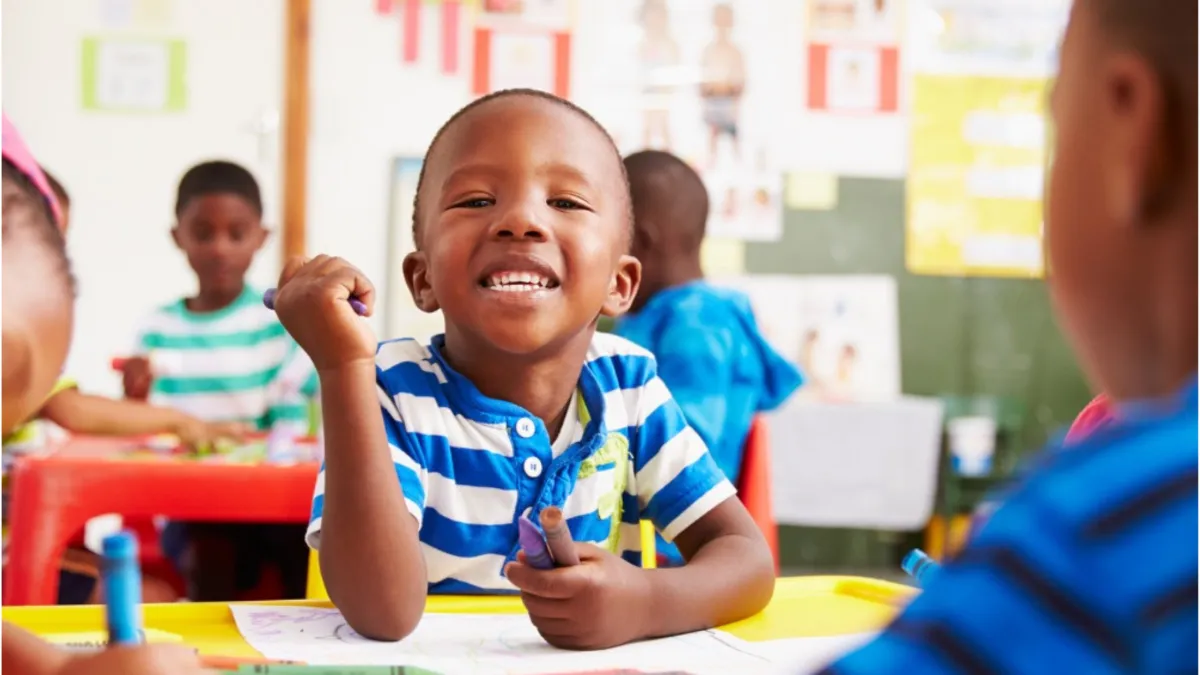What Your Preschooler Should Really Know Before Kindergarten?
(And What You Can Stop Stressing About)

If you’ve ever caught yourself Googling “kindergarten readiness checklist” at midnight while your preschooler is snoring peacefully next to a pile of LEGOs, you’re not alone.
So many moms worry:
“Am I teaching them enough?”
“Are they behind?”
“How will they do in a real classroom?”
And with all the pressure—from social media, parenting blogs, and even well-meaning relatives—it’s easy to feel like you’re failing if your child isn’t reading chapter books by 5.
But here’s the truth: most parents are way too stressed about academics and not nearly focused enough on what actually makes the biggest difference for a smooth kindergarten transition.
Let’s break down what really matters—and what you can stop obsessing over.
1. Your Child Doesn’t Need to Know Everything.
They Need to Know How to Learn. Kindergarten teachers aren’t expecting perfect little students with full mastery of reading, math, and science. What they’re hoping for is a child who knows how to:
Listen to instructions
Follow a simple routine
Work independently for short stretches
Ask for help when they need it
Play well with others
If your child can do some of these things—or is learning to—you’re already ahead of the game. So instead of drilling flashcards or trying to mimic a full school day at home, focus on building these soft skills through play, storytelling, crafts, and simple routines. Not sure where to start? Inside our free preschool community, I share weekly tips and simple activities you can do with your child in under 15 minutes a day. Come join us.
2. Foundational Academics Can Be Fun (And They Should Be)
That doesn’t mean ABCs and 123s don’t matter—they do! But the way your child learns them is just as important as what they’re learning. At age 4, your child should be getting comfortable with:
Recognizing most letters (and maybe some sounds)
Recognizing numbers up to 10 or 20
Identifying basic shapes and colors
Writing their name (even if it’s messy!)
Holding a pencil, using scissors, and gluing with control
Listening to and retelling stories
Sorting, matching, and basic pattern recognition
You don’t need a fancy curriculum or a background in early childhood education to help them with this. You need time, consistency, and activities that feel like play.
That’s why in our online preschool, we use a theme-based approach—so kids learn naturally through music, movement, crafts, stories, and games. It's not just more fun for them—it’s way less stressful for you.
3. Social-Emotional Skills Matter Just As Much As Letters & Numbers
One of the most overlooked areas of kindergarten readiness is emotional intelligence. Can your child:
Wait their turn?
Sit in a group without interrupting?
Share materials?
Express their feelings with words?
These skills are just as critical (if not more) than academics for helping kids thrive in a classroom. That’s why your home environment—and the kinds of interactions your child has with adults and peers—play a huge role. Whether you’re home full-time or juggling a million things, having a preschool structure—even part-time—gives your child the consistency and interaction they need to build these life skills before kindergarten starts.
4. You Don’t Have to Do This Alone
Here’s where I want you to take a deep breath, mama:
You are not supposed to have it all figured out. You're not a failure because you didn’t start sight word lessons at age 3.
You’re not behind because your child prefers dinosaurs over workbooks. In fact, you’re doing exactly what a great mom does: you care. You’re showing up. And you’re asking the right questions. The good news? There are tools and teachers who can partner with you, take some of that mental load off your shoulders, and make learning joyful again—for both of you.
That’s what we do in our online preschool. You don’t have to plan the activities, worry about what comes next, or wonder if your child is on track. You just show up, log in, and let us guide the way.
Final Thought: Let go of the pressure. Lean into the process.
Your child doesn’t need perfection. They need presence.
So if you’ve been feeling behind, guilty, or overwhelmed, let this be your permission slip to drop the pressure. Start where you are. Get support. And know that preparing your child for kindergarten doesn’t have to feel like a full-time job.
It can feel like play. It can feel like connection. And it can start today.
🎁 Ready to feel more confident about your child’s progress?
Grab your free Kindergarten Readiness Report
